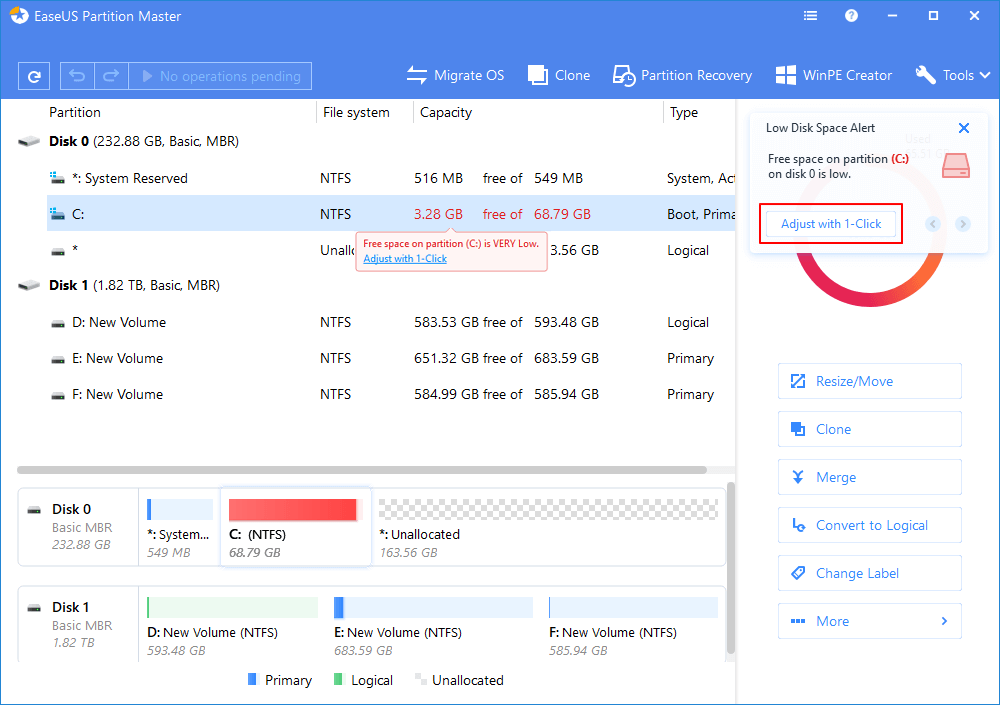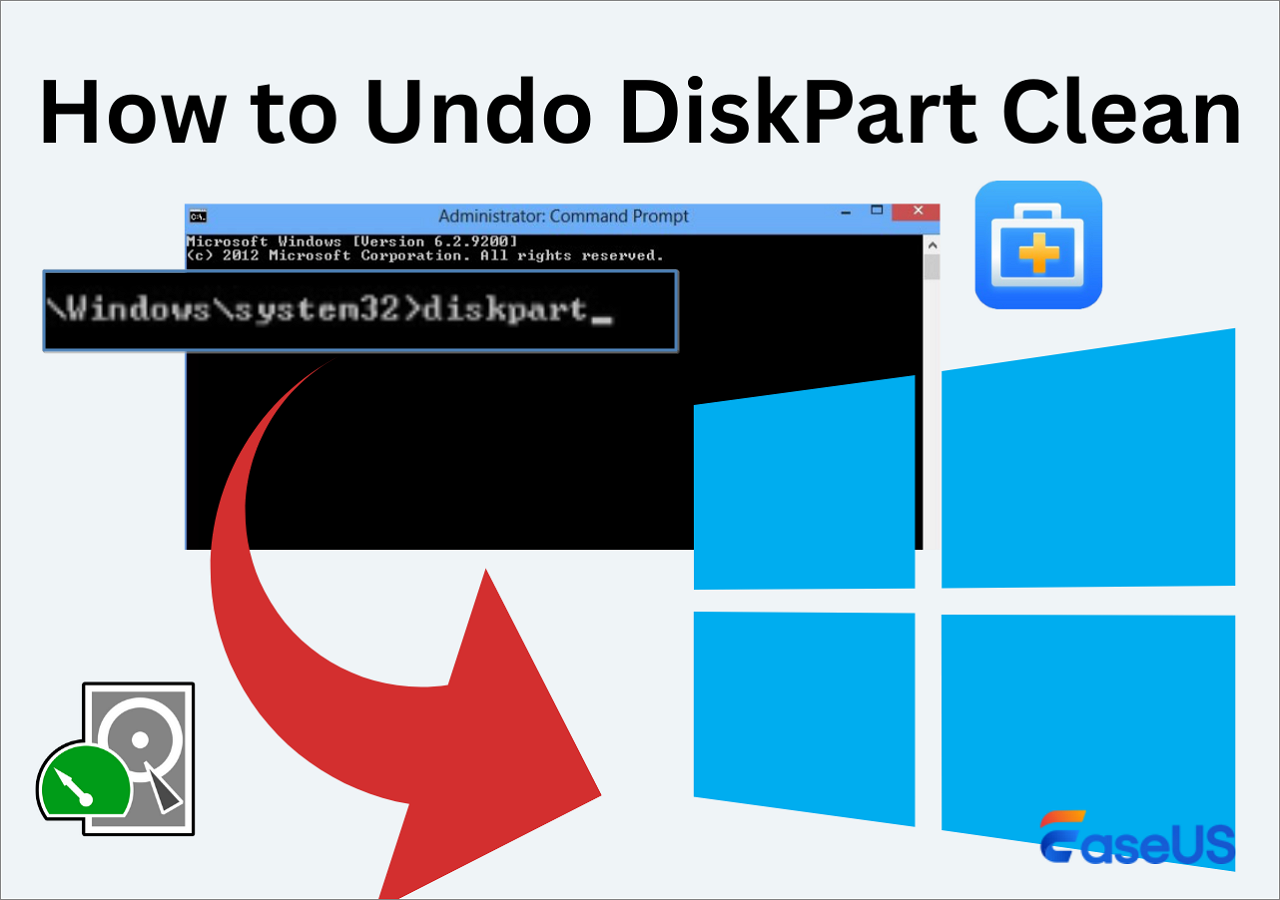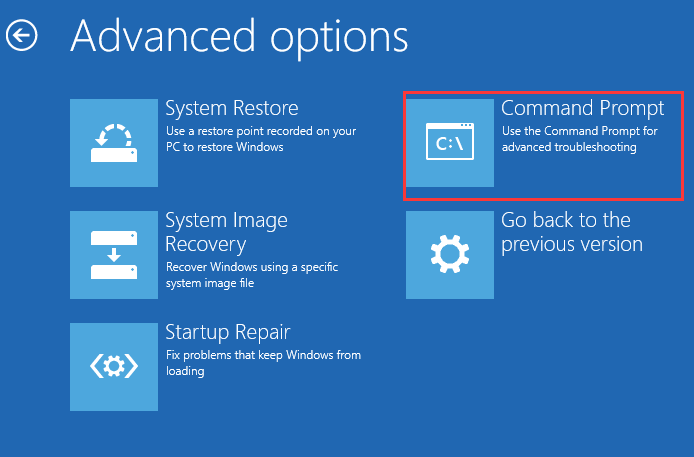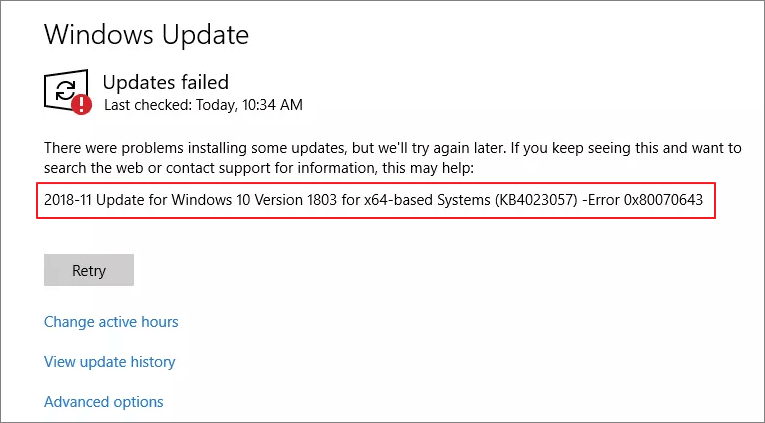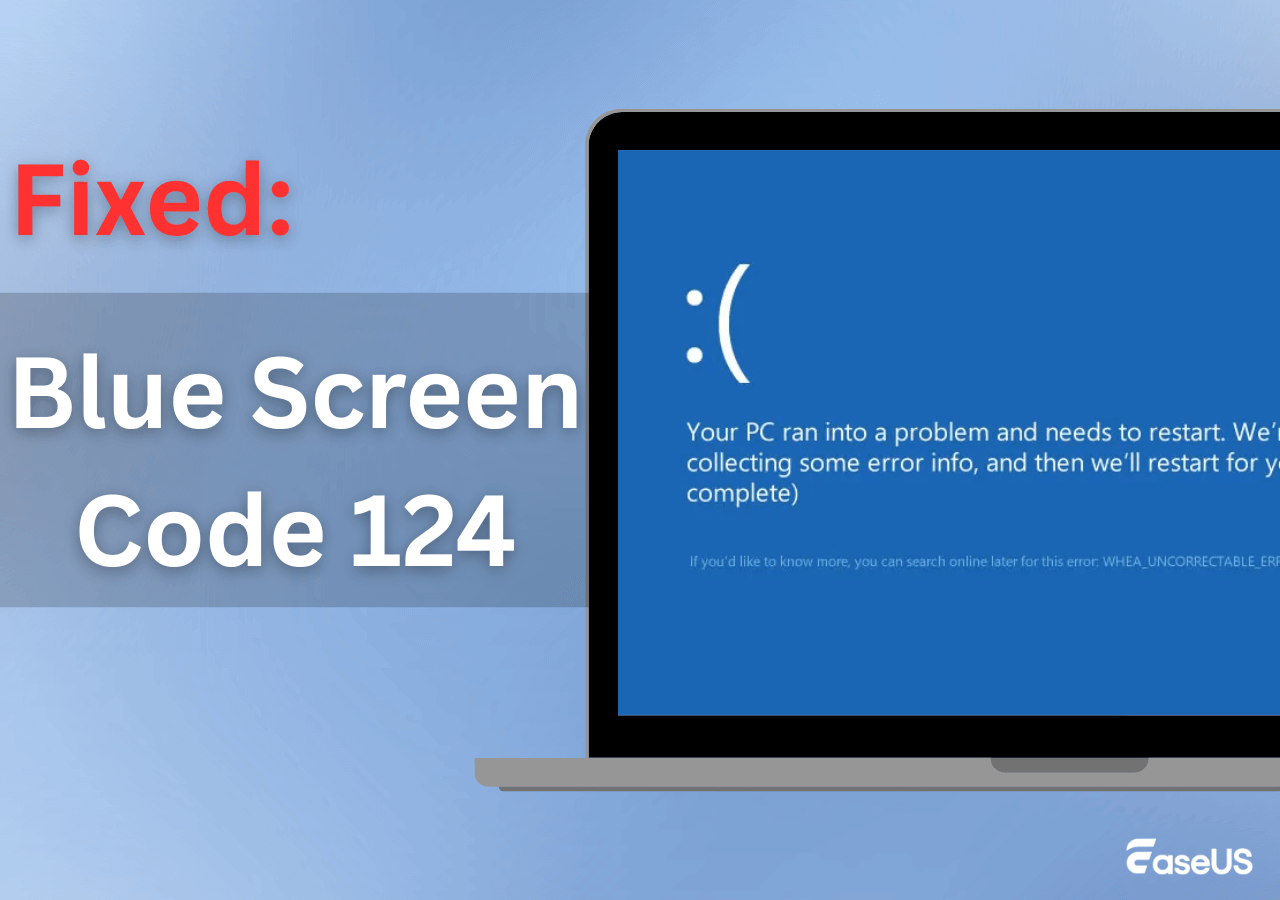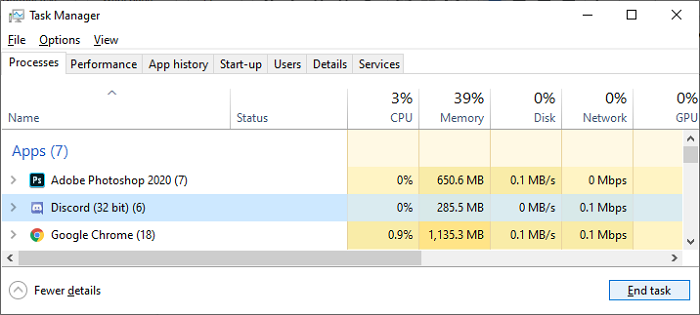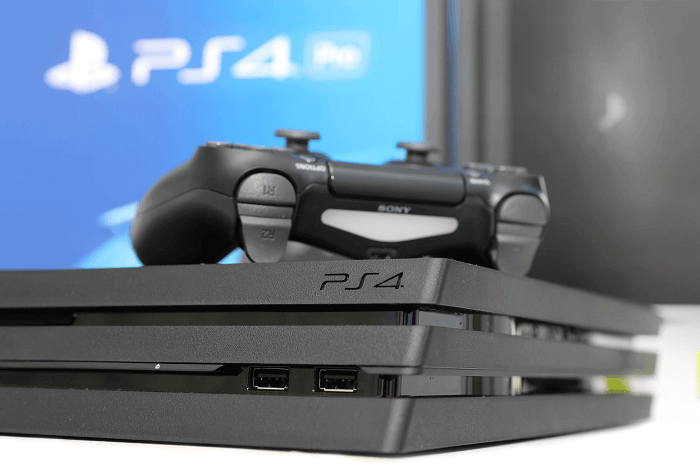-
![]() RAID Recovery Full Guide: Recover Data from RAID 0/1/5/6
RAID Recovery Full Guide: Recover Data from RAID 0/1/5/6 January 29,2026
January 29,2026 6 min read
6 min read -
![]() Undo DiskPart Clean: Recover Data Lost by DiskPart Clean
Undo DiskPart Clean: Recover Data Lost by DiskPart Clean February 06,2026
February 06,2026 6 min read
6 min read -
![]() Picture Contains Invalid Image File Header, How Do I Fix It? [5 Ways]
Picture Contains Invalid Image File Header, How Do I Fix It? [5 Ways] January 29,2026
January 29,2026 6 min read
6 min read -
![]()
-
![]()
-
![]()
-
![]() Stop Code 0x00000124: Causes, Fixes, and How to Recover Files
Stop Code 0x00000124: Causes, Fixes, and How to Recover Files January 29,2026
January 29,2026 6 min read
6 min read -
![]() Discord Not Opening, Stuck or Not Responding on Startup
Discord Not Opening, Stuck or Not Responding on Startup February 12,2026
February 12,2026 6 min read
6 min read -
![]()
-
![]()
Page Table of Contents
Did you wait for a long period for the computer to boot up but it stuck in "Windows is loading files..."? Don't worry when you come across this error. In the following, you will find 9 fixes to get your computer out of this issue. Pick up one and make your computer work now:
| Workable Solutions | Step-by-step Troubleshooting |
|---|---|
| Fix 1. Run Startup Repair | Insert Windows installation disk and boot PC on it > Select "Repair your computer"...Full steps |
| Fix 2. Update Computer Drivers | Restart PC and press F8 > Enter Advanced Boot Options > Select "Safe Mode"...Full steps |
| Fix 3. Use Windows Repair Services | A safe way to fix Windows 10 issues without data loss is using manual Windows repair services...Full steps |
| Fix 4. Check HDD and RAM | If you have 1+ hard disk or RAM memory stick, remove the additional one and restart PC...Full steps |
| Fix 5. Reset or Update BIOS | Enter BIOS > "Setup Defaults" > "Load Setup Default" > Save the changes...Full steps |
| Fore More Fixes | Uninstall suspicious programs, run bootrec, run CHKDSK, and reinstall Windows (in Fix 5, 6, 7, and 8)...Full steps |
Overview of 'Windows is loading files'
"When I run a startup repair on my Windows 10 Dell laptop, the system was stuck at loading circle in a reboot loop. It kept showing the 'Windows is loading files' screen. When the loading process was finished, it went back on the laptop starting page and went to the Windows is loading files screen again and again."

A similar situation of the "Windows is loading files" issue is that when you try to reinstall Windows, you may get a black screen that shows you the "Windows is loading files" message but the loading wheel is frozen and never moved on. Usually, Windows couldn't load correctly can happen for various reasons. And following the issue, users may also encounter other problems like the black screen of death, computer freezing randomly, startup repair loop, disk boot failure, etc.
Possible Causes
The Windows loading process is a process that will happen each time you start your computer. Generally, it will go through so quickly that you cannot even notice it. But if you are stuck on the screen, there must be something wrong with your computer.
The "Windows is loading files" loop may occur when you try to start your computer or reinstall Windows. If you come across this issue when you start your computer, it may result from a damaged BOOTMGR. (BOOTMGR, Windows Boot Manager, is a small piece of software that helps your Windows operating system start.) While if it occurs when you try to reinstall Windows 7 or Windows Vista, the culprit may be your computer drivers.
Fixes for Windows 11/10/8/7 is Loading Files Loop
- Important
- Before starting, note that you should have a corresponding Windows installation media, be it a bootable USB drive, CD or DVD disc. And make sure the bootable disk is set up as the first in the BIOS boot sequence. If you don't have the CD/DVD or USB boot drive, visit Microsoft's page about how to create Windows 10 installation media (www.microsoft.com/en-us/software-download/windows10) for help.
Whether the "Windows is loading files" loop is due to BOOTMGR damage or problematic computer drivers, you can apply the following solutions to fix it.
Method 1. Run Startup Repair
The first tip we recommend you try is to perform Startup Repair with the Windows installation disc.
Step 1. Insert your Windows 7/Vista installation disc into your computer.
Step 2. Start your computer and boot from your installation DVD.
Step 3. Select "Repair your computer" in the Windows Welcome screen.
Step 4. Choose your corresponding OS. When you see the System Recovery Options, choose "Startup Repair".
Step 5. Wait for the repairing process to finish. After that, restart your computer.
If "Startup Repair" cannot fix your PC that is stuck at the "Windows is loading files" screen, continue to try the "System Restore" option.
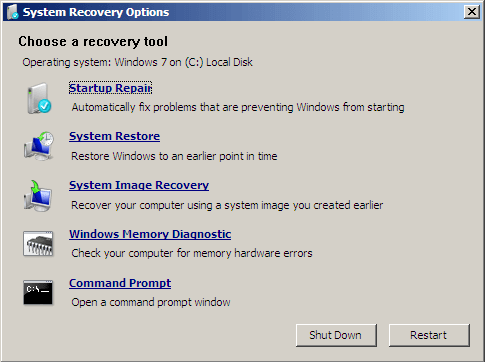
Method 2. Update Computer Drivers
Device drivers server as the communication media between your Windows OS and the device (motherboard, video card, sound card, printer, keyboard, mouse, etc.). Computer and hardware manufacturers always include a group of drivers for different hardware devices, like driver CD or DVD. The driver-related problems can also be fixed by updating the drivers. To update drivers on a computer that cannot boot, you need to enter the Safe Mode. Safe Mode starts your computer with only the necessary drives and services. By doing so, it limits your Windows operations to basic functions, which can serve as a troubleshooting function.
Step 1. Restart your computer. Once it starts, press "F8" in 1-second intervals until you see the Windows logo.
Step 2. Then you will see the menu of "Advanced Boot Options". Under it, choose "Safe Mode".
Step 3. Insert your driver CD/DVD and find the drivers.
Step 4. Run the .exe file or setup file in the driver folder and follow to install the driver. If there is a .inf file only, you can install the driver using the .inf file.
Method 3. Use Windows Repair Services
A safe way to fix Windows 10 issues without data loss is using manual Windows data recovery services. EaseUS professional technical team can help you solve any system startup errors, including system failure, system blue screen, system black screen, and so on.
Consult with EaseUS data recovery experts for one-on-one manual recovery service. We could offer the following services after FREE diagnosis:
- Fix Windows boot issues, including BSOD
- Fix Windows error and configure Windows environment
- Restore the system when it fails to boot
- Optimize Windows computer to make it run quickly
Method 4. Check HDD and RAM
A problematic hard disk or RAM is also likely to cause the "Windows is loading files" loop. If you have more than one hard disk or RAM memory stick on your computer, you can try to remove the additional devices and restart your computer.
Method 5. Reset BIOS or Update BIOS
According to user feedback, it's also helpful to reset BIOS to its default settings or update BIOS to the latest version. Here we will show you the way to reset BIOS:
Step 1. Restart your computer.
Step 2. Press the proper key to enter BIOS. (Depending on the computer you are using, the keys to enter BIOS vary.)
Step 3. Find the "Setup Defaults" option. It may be called Load Default, Load BIOS Defaults, Load Default Settings, Load Setup Default, or something similar.
Step 4. Save the changes and exit BIOS.
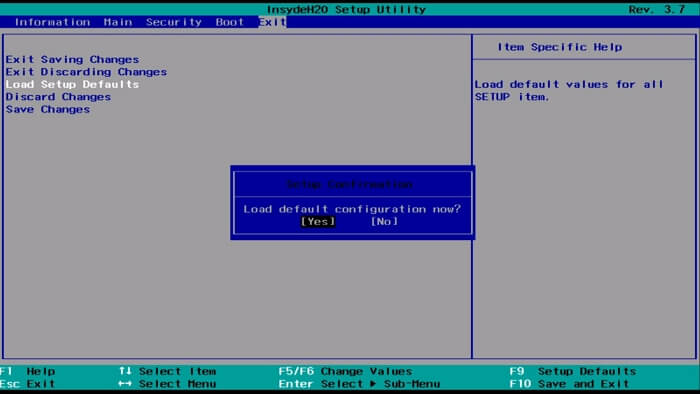
Method 6. Boot into Safe Mode
If you have recently installed new programs or drives on your computer before the "Windows is loading files" error happens, you can take a chance to remove the program or drive by booting to Safe Mode.
Step 1. Restart your computer. Once it starts, press "F8" in 1-second intervals until you see the Windows logo.
Step 2. Then you will see the menu of "Advanced Boot Options". Under it, choose "Safe Mode".
Step 3. Uninstall the suspicious programs or drivers that lead to your PC being stuck at "Windows is loading files".
Step 4. When you have finished troubleshooting, repeat the first step and choose "Start Windows Normally" under the "Advanced Boot Options".
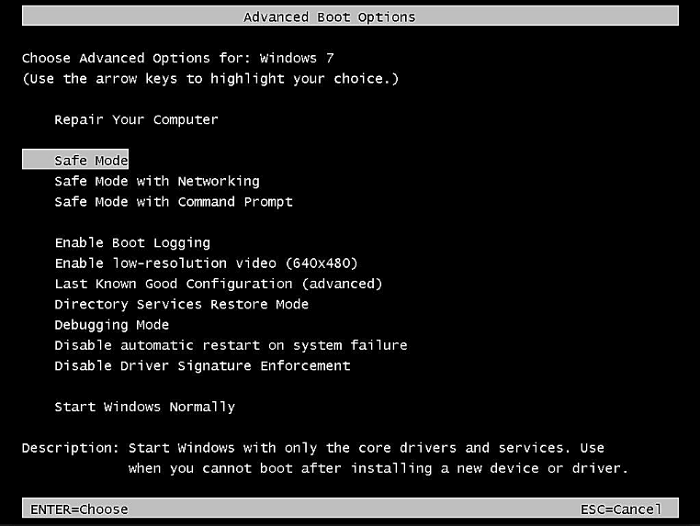
- Tip
- There are "Last Known Good Configuration (advanced)" and "Disable automatic restart on system failure" options under Advanced Boot Options. You can also try to apply these options to have a try.
Method 7. Run bootrec
Bootrec, also called bootrec.exe utility, is a tool provided by Microsoft in the Windows Recovery Environment. When your computer fails to start, bootrec.exe can be used to fix the Master Boot Record (MBR), Boot Sector, Boot Configuration (BCD), and boot.ini.
Step 1. Insert your Windows 7/Vista installation disc into your computer.
Step 2. Start your computer and boot from your installation DVD.
Step 3. Chose "Command Prompt".
Step 4. Enter the following command one by one:
- bootrec /fixboot
- bootrec /scanos
- bootrec /fixmbr
- bootrec /rebuildbcd
- Exit
Step 5. Restart your computer.
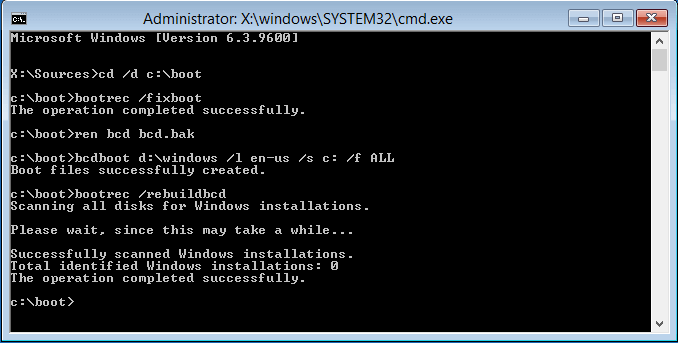
Method 8. Run Chkdsk
CHKDSK is a command that can check and repair errors found in a disk. As mentioned above, a problematic hard disk is likely to lead to the "Windows is loading files" error. Thus, it is useful to run CHKDSK to repair your disk errors.
- Warning
- Running chkdsk can hopefully fix the drive error issues, however, it can also result in total data loss. So, perform data recovery in advance, and then continue with the CMD method.
Step 1. Insert your Windows 7/Vista installation disc into your computer.
Step 2. Start your computer and boot from your installation DVD.
Step 3. Chose "Command Prompt".
Step 4. Type chkdsk c: /f and hit "Enter". (Replace "c" with your system partition.)
Step 5. Enter exit and restart your computer.
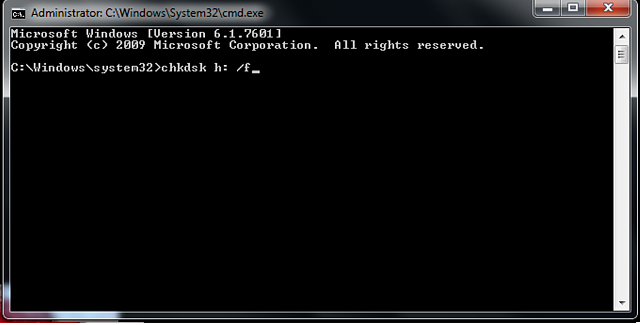
Method 9. Reinstall Windows
If none of the solutions above works to fix the "Windows is loading files" error, the last solution provided is to reinstall Windows. Generally speaking, reinstalling Windows won't lead to data loss. But in rare cases, OS reinstallation may cause data loss to your system partition. Thus, it's necessary to keep the data on your system partition safe before the operation. Here EaseUS Data Recovery Wizard can help access data without OS! With it, you can rescue data and save it to a safe place like an external disk or USB device, even when your PC won't boot into Windows.
Download the EaseUS bootable data recovery software and follow the guide below to solve your problem.
To export data before fixing Windows is loading files stuck loop by reinstalling Windows:
Step 1. Create a bootable disk
Launch EaseUS Data Recovery Wizard, choose "Crashed PC" and click "Go to Recover".
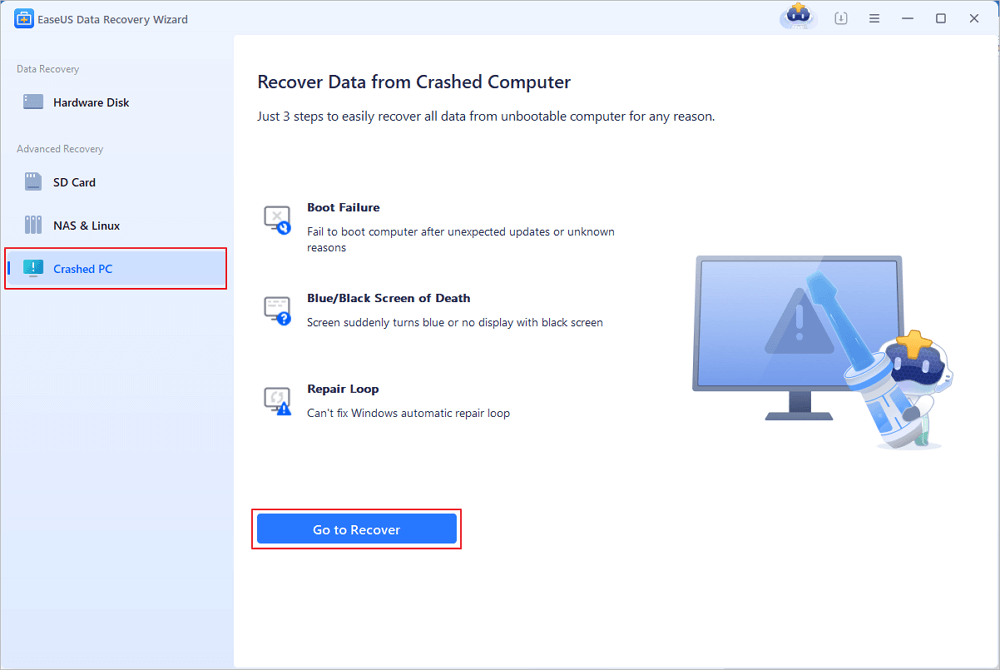
Select an empty USB to create the bootable drive and click "Create".
⚠️Warning: When you create a bootable disk, EaseUS Data Recovery Wizard will erase all data saved in the USB drive. Back up important data beforehand.
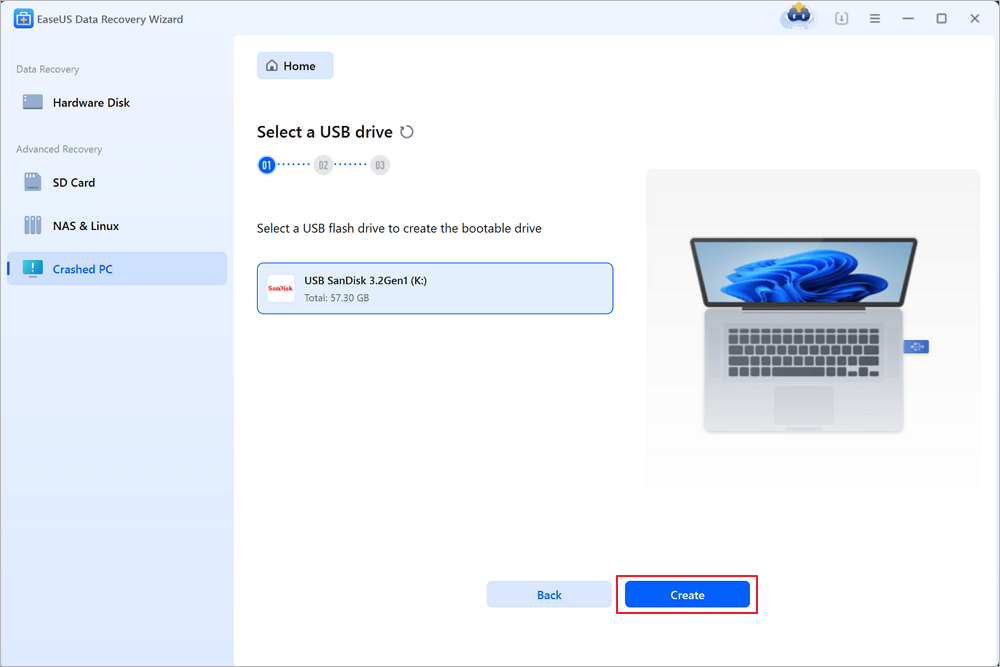
Step 2. Boot your computer from the bootable USB
Connect the bootable disk to the PC that won't boot and change your computer boot sequence in BIOS. For most users, it works well when they restart their computer and press F2 simultaneously to enter BIOS.
Set to boot the PC from "Removable Devices" (bootable USB disk) beyond Hard Drive. Press "F10" to save and exit.
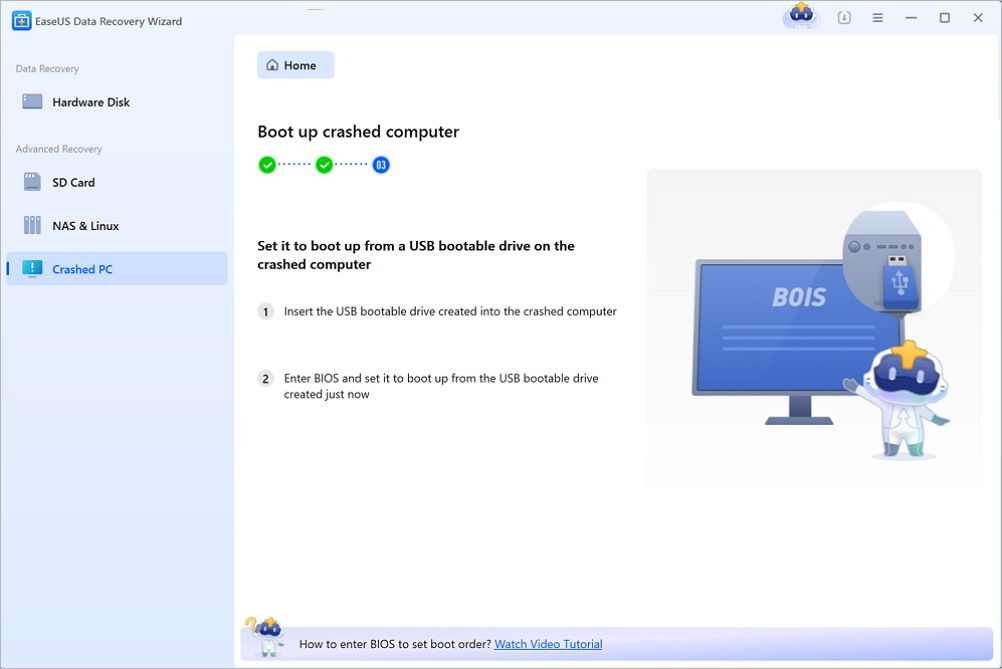
Step 3. Recover data from a crashed system/PC
After booting from EaseUS Data Recovery Wizard bootable disk, select the drive you want to scan to find all your lost files. Preview and recover the files you need to a safe location.
💡Tip: You can restore data on the local disks, external hard drives, and also the cloud storage.
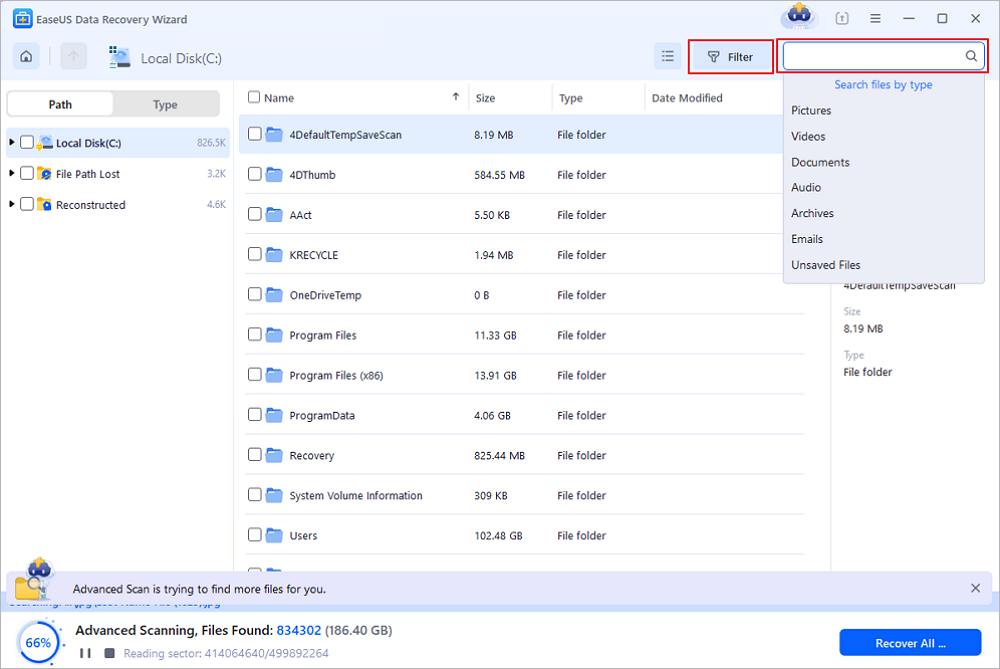
Now you can reinstall Windows without worrying about any data loss:
Step 1. Insert your Windows 7/Vista installation disc into your computer.
Step 2. Start your computer and boot from your installation DVD.
Step 3. Select a keyboard method and choose a language you prefer. Click "Next".
Step 4. Choose "Install Now".
Step 5. Follow the wizard to finish the installation process.
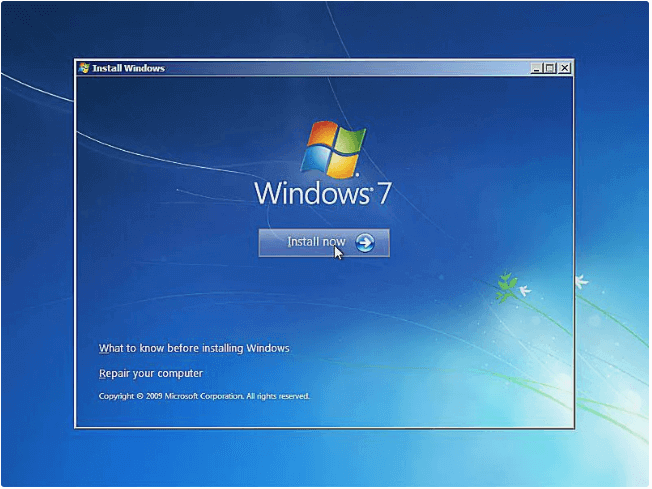
The Bottom Line
The "Windows is loading files" error generally occurs on computers running Windows 7 or Windows Vista. Driver issues and corrupted BOOTMGR are the two main causes of the problem. All the solutions above are worth trying. If you are worried about data loss, don't hesitate to use EaseUS Data Recovery Wizard software to access and recover your computer files when your computer cannot boot.
Was this page helpful?
-
Brithny is a technology enthusiast, aiming to make readers' tech lives easy and enjoyable. She loves exploring new technologies and writing technical how-to tips. In her spare time, she loves sharing things about her game experience on Facebook or Twitter.…
-
Evan Galasso is a digital forensics and data recovery engineer with over 10 years of experience in the field. He presents opinions on the current state of storage media, reverse engineering of storage systems and firmware, and electro-mechanical systems of SSDs and HDDs.…

20+
Years of experience

160+
Countries and regions

72 Million+
Downloads

4.9 +
Trustpilot Score
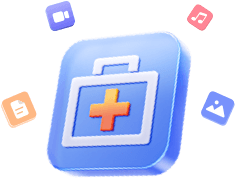

Free Data
Recovery Software
Recover data up to 2GB for free!

